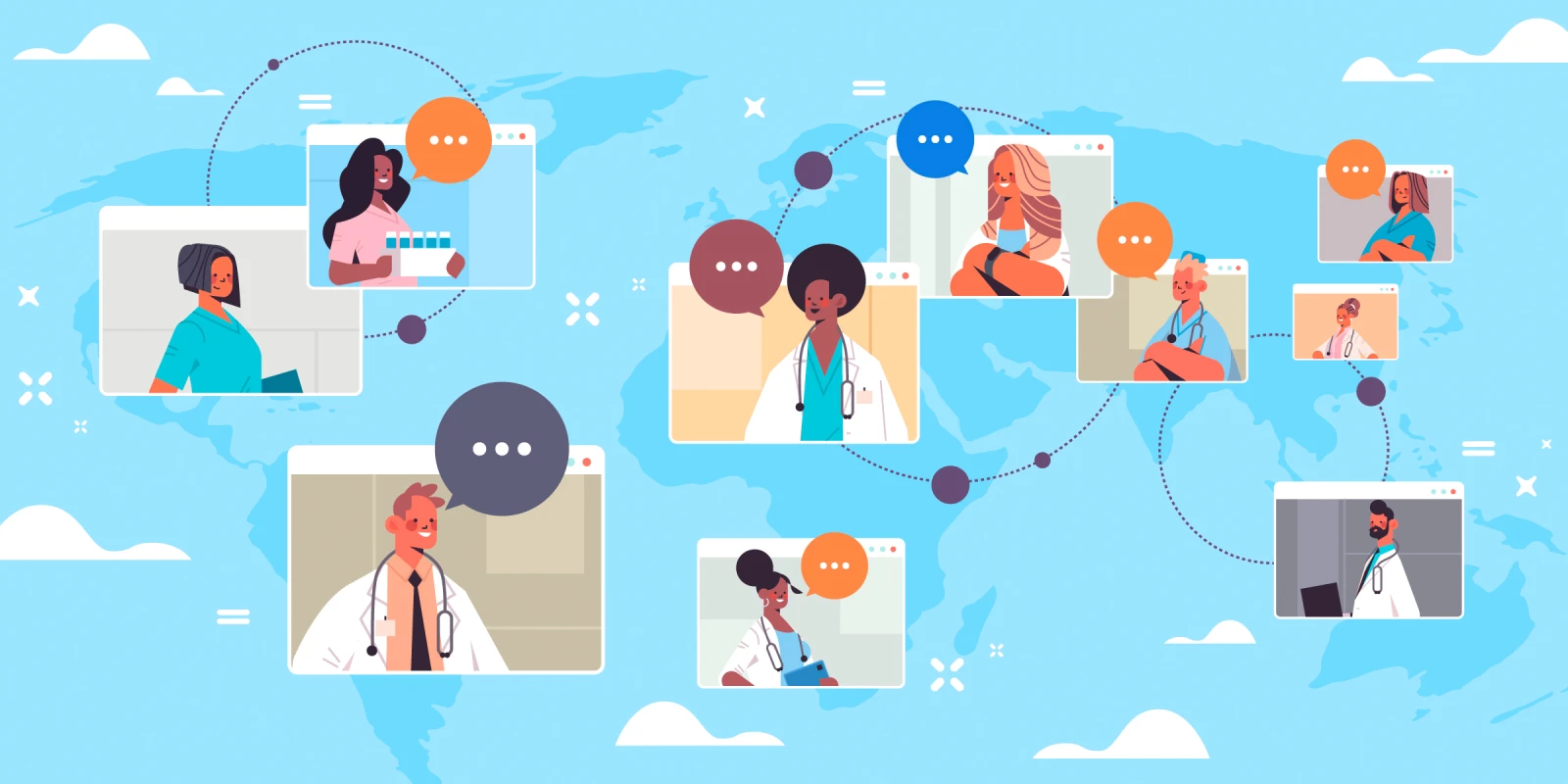I am a professor of Infectious Diseases at the University of Washington in Seattle, where I have practiced since 2005. My job involves directing our ID fellowship, co-directing our antimicrobial stewardship program, running the ID clinic and consult service, attending on inpatient internal medicine, and lots of teaching. I absolutely love what I do. ID is so dynamic, so challenging, and usually so much fun.
Each fall brings a highlight for my year: IDWeek, the ID Society of America’s annual meeting. This conference provides a chance to learn about advances in the science and practice of ID, and to catch up with colleagues from around the world. I have not missed a meeting since my first one in 2005.
Last year, IDWeek was converted to an online-only offering. Going digital was clearly the right thing to do, and although everyone in attendance suffered from “zoom fatigue” and missed connecting with each other in person, it worked. We were reassured that we were being safe, and at least we could look forward to an in-person meeting in 2021, when this whole pandemic mess would certainly be over and done with, thanks to the promise of vaccinations.
Well, here we are. Vaccinations did indeed become permitted for use in the USA shortly after IDWeek 2020, and they have been more safe and effective than my most optimistic dreams. However, resistance to vaccine uptake has been higher than in my darkest nightmares. And the virus has continued to evolve into ever more contagious forms.
These ingredients make any large indoor gathering ill-advised. Clearly, IDWeek would have to happen online once again. Could it be a meaningful and fulfilling meeting? Thankfully, for me, it was both.
Some highlights:
- “Chasing the Sun” an all-day symposium on COVID-19, in which presentations were made from time zones around the globe, literally chasing the sun, not just the “corona” of viral fame. The closing address by CDC Director Dr. Rochelle Walensky was a special highlight.
- The IDea Incubator, a kind of “Shark Tank,” in which ID docs pitch their ideas to business and ID experts, competing for seed funding and linkages with BARDA and J&J Labs. Innovations in patient care were discussed that would make a real difference in outcomes, even if not easy to “sell” in the traditional venture capital marketplace.
- The Medical Education Community of Practice, in which clinician-teachers could exchange tips and techniques for upping their teaching game, and discuss ways to share their work in peer-reviewed journals, then leverage that scholarship to advance their academic careers.
- A symposium on Advanced Practice Providers in ID, in which APPs and physicians shared their successes and challenges in collaboration. APPs are very important partners in ID, a key resource in our pressing workforce needs, and represent future leadership in our profession.
- The Fellowship Program Directors’ Meeting, in which mindful discussions on Diversity, Equity, and Inclusion were front and center. All of us in the business of training the next generation of ID physicians have the responsibility, and have made a commitment, to ensure ID becomes a fully diverse and welcoming specialty. We already lead in this regard, but there is still so much to accomplish.
For me, the greatest benefit of IDWeek 2021 was the inspiration and comfort provided by connecting with friends, old and new, who shared their stories with courage, insight, and humility. By telling our stories—scientific, clinical, and personal—we unburden ourselves and uplift each other.
I still think of COVID-19 as a Rorschach test, revealing our inner truths. Some see the pandemic as a malevolent force, others shrug it off as a hoax. For most of us who have dedicated our lives to the pursuit of infectious diseases, it is neither evil nor fake. Rather, it is a great challenge of our time. We are still learning about the biology of SARS-CoV-2 and the disease it causes. However, we already know enough to diagnose and prevent it, and to provide rational treatments—and to avoid irrational ones. Yes, scientific challenges remain, and exciting discoveries are sure to come, but the greatest challenges are social, political, and ethical. We know what to do, and we have the tools to bring the pandemic under control… if only our society chooses to do the right things.
In 2016 I was fortunate to summit Mt. Everest, and since returning I have often been asked whether the expedition was difficult. Yes, of course it was incredibly challenging… but not nearly as exhausting, grinding, and draining as COVID-19. Our pandemic response has been the most challenging task of my life, and I think most ID doctors feel the same way. So, the next time you see an ID doc, please consider saying thanks. We are not in this alone, and we know how much our colleagues across medical practice are doing to help. But, many of us in ID experience a special form of frustration, exasperation, and fatigue—fatigue of patience, and even fatigue of compassion. We chose this profession mindfully, we swore an oath to care for patients regardless of their behaviors and beliefs. This is our ethos. And yet, I must admit that for many of us—certainly for me—the ethos is sorely tested of late. On behalf of all of us, thank you for all you are doing to get our nation and our world immunized and masked up. Clearly, after millions of lives lost and ruined, there is no justifiable alternative.
Dr. Pottinger has no conflicts of interest to report.
Image by gmast3r / Getty







